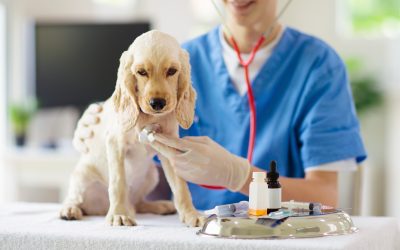Getting a new puppy or kitten is always an exciting time. You should enjoy playing with them and watching their personalities grow. However, you also have to make sure you are getting them the right vaccinations. You can do this by taking your pet to an animal hospital. Vaccinations can protect your animals from rabies and other diseases. The vaccinations can also help protect you. To help you make sure you get your animals the right vaccinations while they’re young, here is a quick guide.
Puppy
Not all dogs need every single vaccination on this list. You have to work with your vet to decide what vaccinations your dog needs and when. Here is a general schedule to help you get an idea of what your puppy needs:
At six to eight weeks your puppy needs distemper, measles, parainfluenza, Bordetella and heartworm Prevention. By 10 to 12 weeks, your dog should have DHPP, coronavirus, leptospirosis, Bordetella and Lyme disease. The 12- to 24-week range is when the first rabies shot should be given. At 14 to 16 weeks your dog will need more DHPP, coronavirus, Lyme disease and leptospirosis. Once your puppy is older, he or she will still need to get some vaccines from an animal hospital.
Kittens
The vaccines you have to get for your kitten will also vary based on the cat, where you live and what your veterinarian says. Here is a general schedule to help you get an idea of what your kitten needs:
When your kitten is six to eight weeks old, it will need its RCPC vaccine and heartworm prevention. By the 10 to 12 weeks mark it will be time for the RCPC booster and FELV vaccine. Finally, at 14 to 16 weeks your cat will need another RCPC booster, FELV booster and its first rabies shot. Once your kitten is older, there will be other vaccines and tests that are necessary as well.
Importance
Each vaccine plays an important role in the overall health of your furry family. Bordetella vaccines protect your canine from kennel cough, which can lead to seizures or death. RCPC protects against feline distemper and a number of other diseases. FELV helps guard your cat from leukemia virus. DHPP helps stop parvovirus, which attacks your dog’s gastrointestinal system, and many other diseases as well.
Vets at an animal hospital can work with you to create a unique vaccination schedule for your new puppy or kitten. Adding an animal to the family is an exciting time that takes planning. Make sure to work closely with the staff at the animal hospital to get the right treatments and vaccinations throughout the life of your pet. For more information visit Arkpethospital.com.


